ARTICLE AD BOX

Two girls are playing chase at a municipal garden near Gyan Mandir Society in the Vasna area of Ahmedabad. One realises it’s time to go home. The other one hollers, “Bye, bye, see you,” to her — in English.
The two, aged around 10, are from the nearby Sorai Nagar slums and have picked up the language at the evening class for underprivileged kids by Tresna Foundation. From 4.30 to 6.30pm, Monday to Friday, a portion of the park transforms into an open-air classroom, where hope blooms alongside flowers. Around 100 kids from Classes 1 to 8 gather here. Among them sits 15-year-old Chandni, a house help who never went to school.
Hands that once scrubbed floors now hold a pencil.

Tresna, the brainchild of Rangoli Bakshi, was born eight years ago out of her desire to spend time on a worthy cause. “Tresna started with education for the underprivileged and grew to cover women's health and skill development,” says Bakshi.

Here, children from govt and semi-govt schools find more than just academic support. "They learn all subjects, from English to mathematics, but more importantly, they discover their potential,” says Jalpa, who has been nurturing these young minds for six years.
Jalpa talks about the teething troubles. "Getting children to attend was an uphill task. We went house to house. Parents didn’t see any value in it. When we started out with just five children, even that seemed like a big victory,” she says. The initiative has led to a change in the community. Mothers who once hesitated to send their children to the class are now volunteers themselves. And then there are student volunteers from colleges and those from well-to-do homes.
“Because the children get good exposure, learn good values, and have role models, they feel motivated to come here without fail,” says Bakshi. Even rain can’t throw a wet blanket on their determination.
Studies stop when it pours mid-class, but the students regroup when the skies clear. The transformation of the children is visible in stories like Sunny's. He joined as a third grader. Now in Class 10, he monitors and mentors younger students while nurturing a dream.
"I want to join the army," he says, confident that his dreams are within reach.
The (Foot)Path to Progress
Virat Shah, an instrumentation and control engineer from Ahmedabad's LD Engineering College, was 45 when he decided to quit his high-paying job in the UAE in 2010 to return to his city. “People’s lives have three aspects — social, professional, and personal. I replaced my job with social work. I had earned enough to pursue my dream of educating slum children.” One sees his vision in the bustling streets of Vatva, where dozens of underprivileged children sit attentively, their eyes fixed on their teacher. This makeshift classroom represents Shah’s remarkable journey. What began in 2012 as a single class on a pavement with 10 students has evolved into the Sarvodaya Group Trust, an organisation that has provided supplementary education to approximately 1,800 children from migrant families and pavement dwellers over the past 13 years.
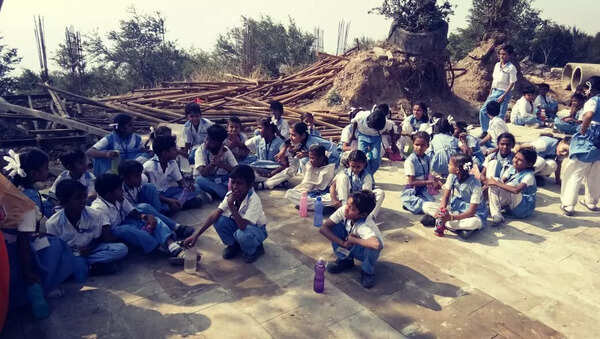
Does it get tough during monsoons? “We scurry under any roof that we find when it rains. We have run classes from a nearby gurdwara, even someone’s front yard to keep the momentum alive despite the seasonal challenges,” says the now 56-year-old. Early on, Virat could only persuade a few parents living in the slums near Isanpur crossroads. Many would skip classes to be at places where they would get food. “It wasn’t their fault as their priority was the next meal, not long-term academic or career goals.”
Shah started serving them meals, gave each of them hygiene kits and uniforms. Shah’s dream was shattered many times, but he pieced it together every time. Soon, he was running nine centres.
Wanting to do more, in 2015 he took them to a nearby municipal school for admissions. The principal refused because of a lack of documentation. Not to be deterred, Shah became their legal guardian in cases where families did not have papers.
Shah even studied LLB to understand legal aspects and help them. Shah’s momentum doesn’t end at municipal school admissions. “I feel that these schools don’t share my vision of a qualitative outcome. Our trust wants to mould the children for society, shaping them into responsible citizens with ethics, values, education, and skills and neutralise the disadvantages of their being born into poverty or growing up on the streets.” Last year, the trust started an English-medium pre-school. “This is not for supplementary education.” Encouraged, Shah and his team are now building their state-board-affiliated primary school up to Class 8 for formal education. “I started to do what I, or any parent, would want for their children — education, strong moral values, and discipline,” he concludes.
Success Amid Dust and Din
It’s around 5.30pm and Kamal Parmar, 79, is sitting outside his automobile-cum-metallurgy workshop in Bhudarpura, chopping onions, unaffected by the pressure washer hissing in the background, the rain and the cacophony of the traffic around him.
The onions will go into a hot snack being cooked nearby. What has this got to do with the story of the man whose footpath school has given direction to hundreds of children? “For 25 years, a hot snack or a small meal has remained the big draw for hundreds of slum children to continue their supplementary education at my class,” he says.
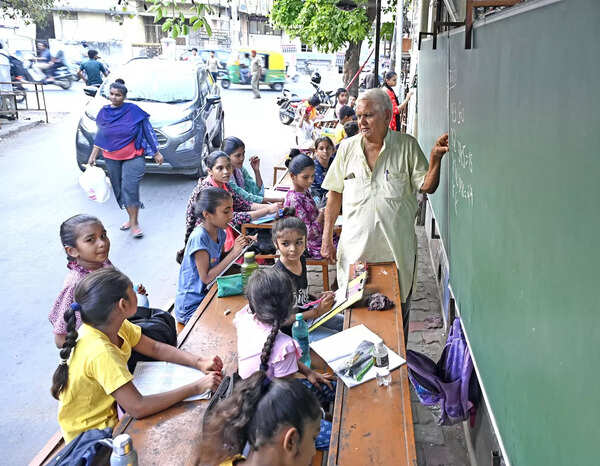
It all began with Parmar’s interaction with some children from the nearby slums returning from school.
It revealed a disturbing truth — despite being in Class 7, these children could barely answer basic questions. This sparked Parmar’s mission that would change hundreds of lives. “They were like blank sheets of paper. We worked on them, and as we started seeing progress, began grouping those with similar talents together.
”Starting with just one blackboard and 10 children, Parmar’s footpath school, which runs every evening from 7-9pm, has grown to accommodate students from Classes 3 to 12.
“For the first five years, I spent my own money on benches, blackboards, notebooks and snacks. As word spread, people and organisations came forward to help,” he says. Amid the din and grime of the footpath, there has been success. Today, his former students hold good posts in banks, and some have moved abroad — success that seemed impossible for children who once saw no future beyond their parents’ struggles.
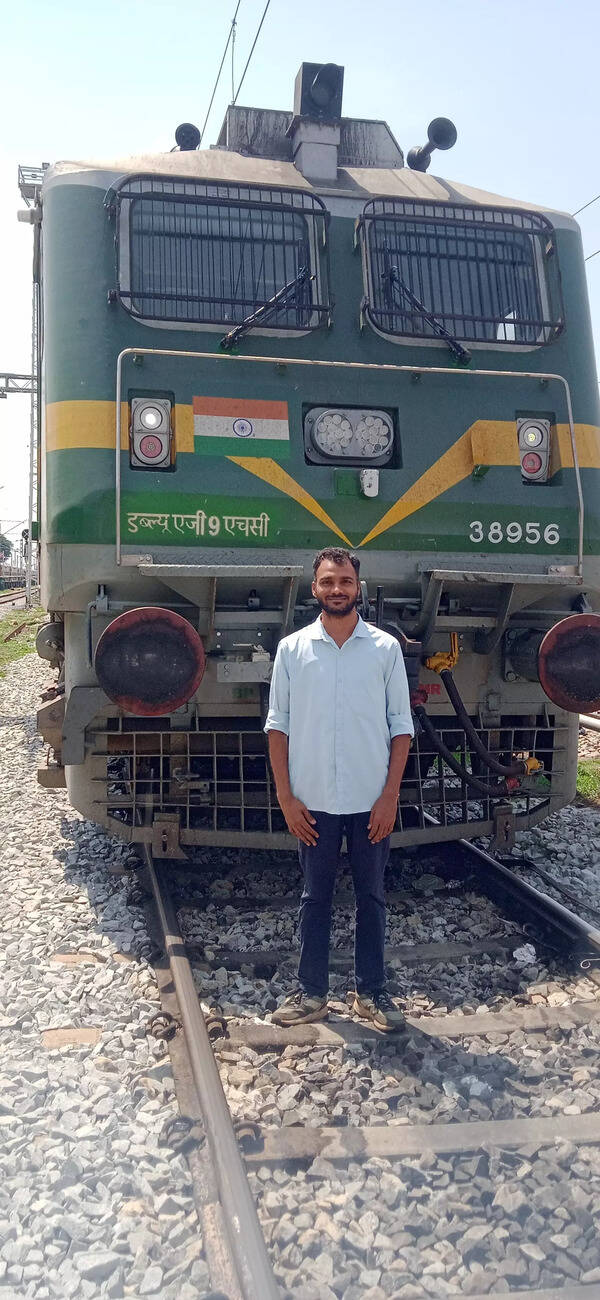
Among them is Ronak Solanki, who joined Parmar’s school in 2004 as a fourth grader, and is now a goods loco pilot for Indian Railway’s South Western division.
“My maths teacher herself didn’t know how to find the area of a circle. Such was the situation at my govt school.” Parmar gave him wings, even sponsoring his education at a private school from Classes 8 to 12. “In Class 10, I scored 97 in maths and 93 in science. Soon, I acquired a degree in mechanical engineering and here I am,” says Solanki.
His current residence, a three-bedroom apartment near Parmar's home, contrasts sharply with his humble beginnings in a 10x12-foot rooftop dwelling. Meanwhile, Parmar’s energy seems boundless even today. “I am doing God’s work,” he simply says. Despite offers to move to a larger space, Parmar insists on keeping the school at its original location. “If I move, the purpose will be lost. The class must be accessible to children from these slums.”
Under A Flyover, Dreams Take Flight
Under the Gyan Shakti Marg flyover, an unusual classroom comes alive each evening. Here, opposite the heritage campus of the Indian Institute of Management Ahmedabad (IIM-A), the Smile initiative (Student-Mediated Initiative for Learning to Excel) is quietly transforming the lives of underprivileged children from Vastrapur and nearby areas.
Founded by Padma Shri awardee Prof Anil Kumar Gupta, this collaborative venture between IIM-A and the Ahmedabad Municipal Corporation serves as more than just a supplementary education centre.
It offers comprehensive support for academic foundations, life skills and career counselling to these children from Classes 6-12, covering science, arts and commerce. Among their bright students is Harsh Panchal, son of a carpenter living in Vastrapur with his two siblings.
Harsh joined Smile when he was in Class 9. In Class 12 boards, he scored 82%, and inspired by the IIM-A team, is currently pursuing an integrated MBA from KS School of Management, Gujarat University. And then, there is Mahima Kotaliya, whose father runs a small grocery store from their home. She aspires to graduate from a prominent college and thereafter, study hard and crack the civil services exam.

What started with 20 students has now grown to 120 regular attendees, though the journey has not been without its challenges. “Every child deserves access to quality education and opportunities for growth. We at Smile have faced obstacles like dropout rates and foundational knowledge gaps but the resilience and determination of our students and team have been inspiring,” says Smile project head Priyanshi Vora, adding, “The transformative power of education is evident in our 100% result rate across all standards.” The volunteer force, comprising IIM-A’s postgraduate students, has doubled from 20 to 40, reflecting the programme's growing impact.
These volunteers don’t just teach — they mentor, motivate and nurture talents through various activities including music, dance, drama and arts and crafts. “We are extremely proud of our students who have excelled and achieved 100% results in Class 10 and 12 board exams for the second straight year,” said Prof Sunil Maheshwari, dean, alumni and external relations, IIM-A, adding that it would not have been possible without the sponsor, IIM-A Alumni Association Mumbai Chapter. A unique aspect of Smile is its Buddy Project, where volunteers engage in year-long, one-on-one interactions with students and their families, creating deeper understanding and support systems.
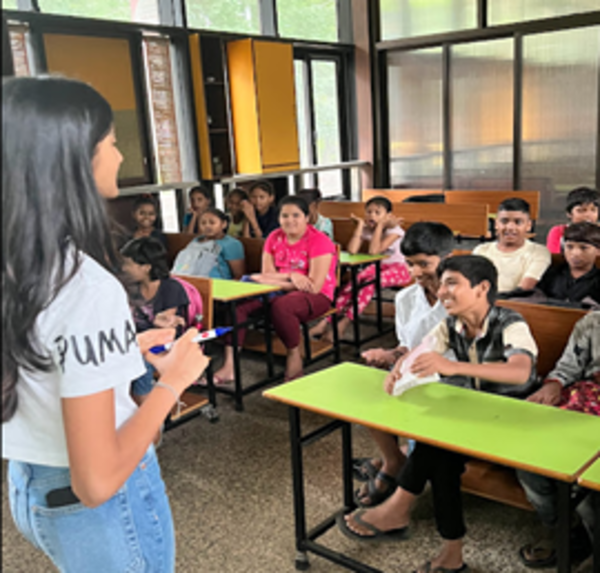
The initiative, supported by IIM-A’s Alumni & External Relations Office, organises activity camps in July and December, providing additional opportunities for learning and engagement. “Challenges ranged from clashes in our schedules to the language barrier, but the most difficult one was the huge grade level gap among the students.
For this, we conducted grade-level assessment tests and modified our pedagogy accordingly,” said Ishita R Sachan, Smile student coordinator and a PGP student of the 2023-2025 batch. As evening falls and the flyover traffic rumbles overhead, Smile continues its mission, one student at a time. Another IIM-A initiative is Prayaas, a student-run effort that aims to empower underprivileged children living around the campus. Established in 2003 by students of the then PGP batch, the initiative now supports over 100 students. The IIM-A community also supports these children in gaining admission to nearby public schools.



.png)
.png)
.png)
















 3 hours ago
6
3 hours ago
6








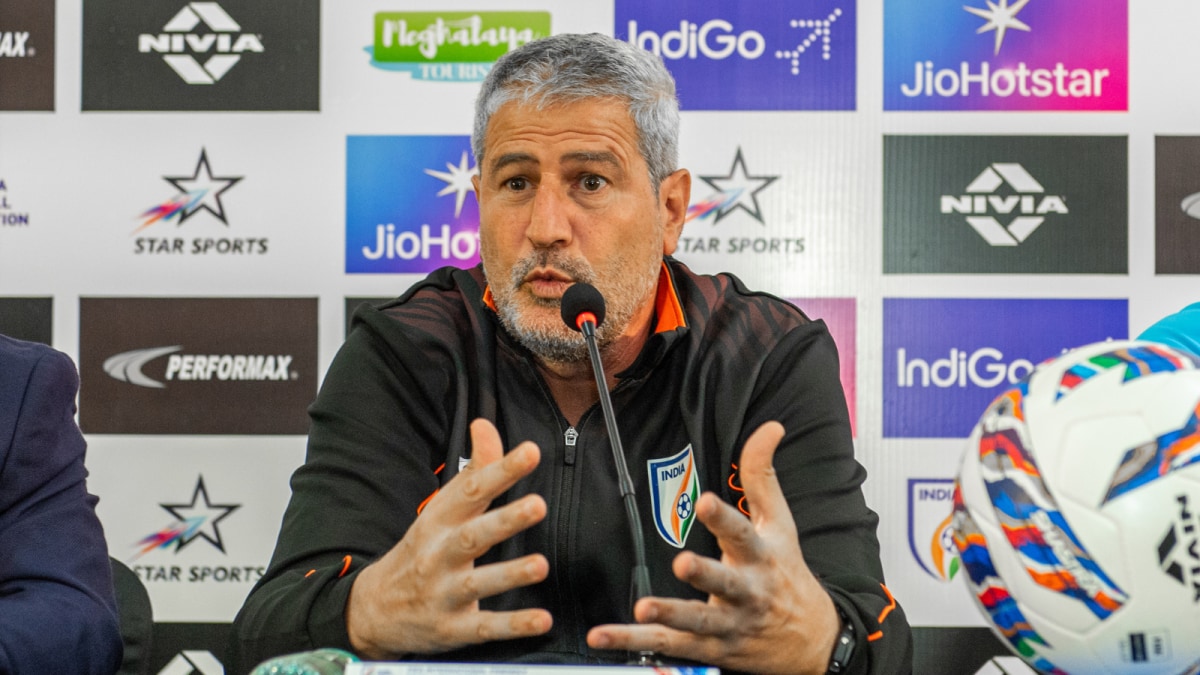
 English (US) ·
English (US) ·